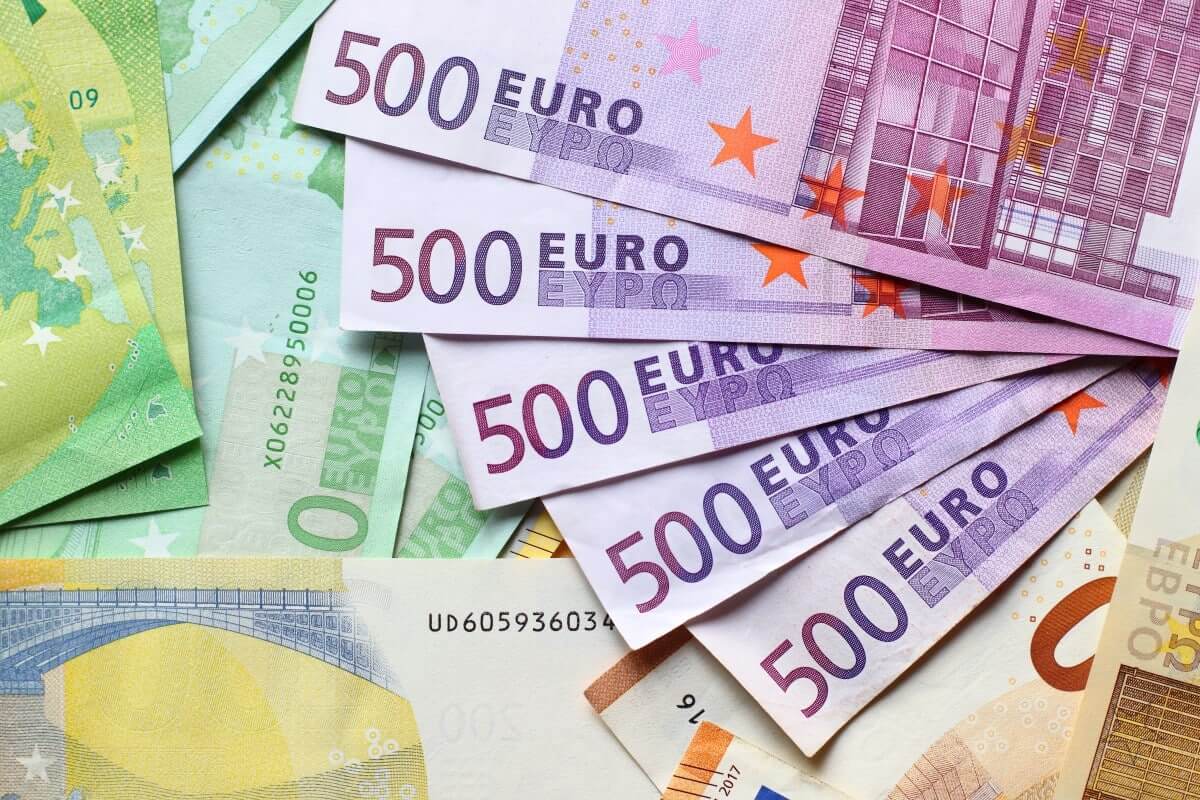
The euro and pound fell while the U.S. dollar rallied
The euro plummeted on Friday along with the British pound. The rallying dollar weighed on the currencies. Market sentiment was weak due to fears over the possible banking crisis. While some economic data showed strong numbers, that was insufficient to lift investors’ moods. As a result, they bought the safe-haven dollar instead of its riskier peers.
In Europe, banking stocks dropped significantly, ending the session in the red. Several major banks, such as Deutsche Bank and UBS Group, suffered as traders feared further complications. The banking sector still hasn’t fully recovered since the 2008 financial crisis, and new problems hit it hard. Even though several officials tried to reassure markets that the eurozone wouldn’t have to endure another crisis, the sentiment remained cautious.
On Friday, Purchasing Managers’ Index (PMI) data came out strong. Despite that, the common currency continued trading in a bearish territory. Overall, European banks shaved off more than 5% during this session.
The euro tumbled by more than 1% today. It exchanged hands at $1.0714. However, the currency shifted a bit higher later, ending the session with a 0.9% loss at $1.0735. Meanwhile, the pound dropped by 0.6%, trading at $1.2214. According to new data, the British economy might grow steadily in the first quarter. But this news couldn’t prop up the falling sterling.
What do the analysts say?
Jane Foley, the Head of FX Strategy at Rabobank London, noted that the data proved to be much better than analysts forecasted. However, the markets are in a risk aversion mood. That means almost all currencies decline versus the safe-haven greenback.
On Thursday, the sterling skyrocketed to a seven-week peak of $1.2341. The currency gained much in volatile trading. The Bank of England delivered a 25 bps hike in its interest rates, supporting the pound’s rally. The BOE made such a decision due to soaring inflation, but its officials also stated that a sudden price surge should prove short-lived. If the inflation truly subsides, the bank will likely stop tightening.
The sterling rally ended today due to new worries about the banking sector. The unexcepted failures of two regional U.S. lenders caused much turmoil, and UBS acquiring Swiss bank Credit Suisse in an emergency sale only deepened investors’ fear.
The greenback wasn’t the only gain today, though. Other safe havens, such as the Japanese yen and gold, also skyrocketed. Christopher Wong, the currency strategist at OCBC, pointed out that a bout of risk aversion bolstered the dollar and yen while pushing other currencies lower. He thinks that the next few days might show some market fluctuations, especially until the sentiment remains fragile.
On Friday, the Japanese yen surged forward by 0.7%, exchanging hands at 129.95 per USD. Earlier in the session, the currency hit a seven-week peak of 129.64. Moreover, a new report showed that in Japan, core consumer inflation decreased significantly last month. But the inflation is still higher than the BOJ’s 2% target. The Bank of Japan has avoided rising interest rates thus far, claiming that it might send the country’s economy into recession.
How is the U.S. dollar trading now?
On Friday, the dollar index rallied by 0.6% at 103.22 against the basket of six major currencies. The Federal Reserve hiked its interest rates by 25 basis points at its meeting on Wednesday. As investors expected such a raise, this news didn’t make much difference in the market.
The bank decided to avoid a higher increase due to uncertainty about the banking sector. However, Fed Chair Jerome Powell commented that the officials might deliver another hike in the near future if needed. On Thursday, U.S. Treasury Secretary Janet Yellen also promised citizens that she would do everything to ensure that their bank deposits stayed safe.
In Asia, emerging market stocks were muted on Friday. The MSCI’s index for currencies declined by 0.5%, though, plummeting after three consecutive days of gains. U.S.-China tensions soured the sentiment. Consequently, stocks in China and Hong Kong dropped by 0.6% each. On Thursday, U.S. lawmakers made a case to ban TikTok, accusing the app of serving harmful content.
South Africa’s rand decreased by 0.7% on Friday. Russia’s rouble also tumbled by 0.6%. At the same time, Turkey’s lira lost approximately 0.2%. The country’s central bank maintained its policy rate at 8.5%, as analysts forecasted.




